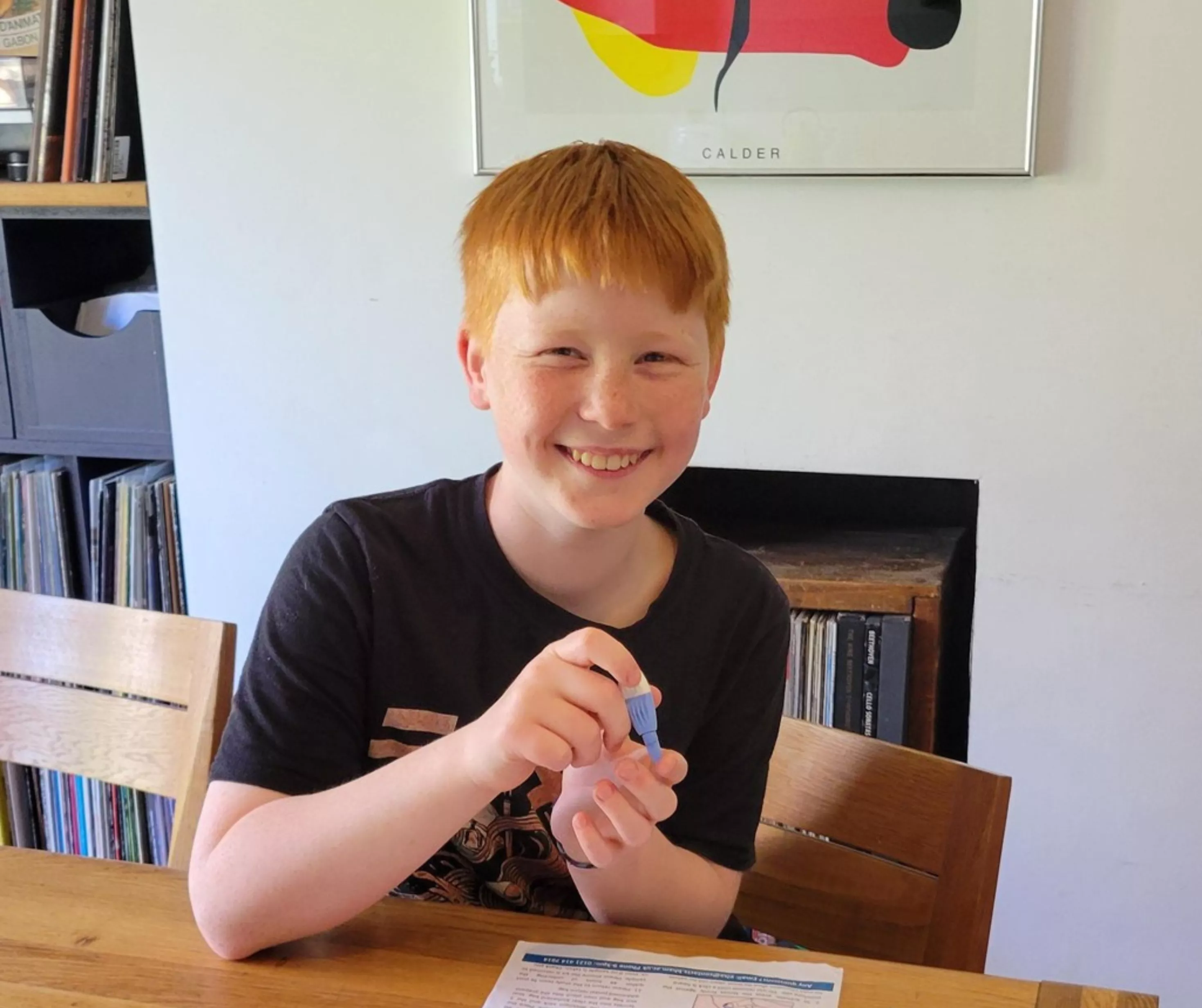
We’re thrilled that 20,000 children have signed up to the ELSA (EarLy Surveillance for Autoimmune diabetes) study to understand their future risk of type 1 diabetes. Recruitment is still open and researchers need more families to get involved and spread the word. We hear from Dr Lucy Chambers, Head of Research Communications at Diabetes UK, whose family has taken part.
I don’t jump into decisions; I always do my research and make sure to check out all the options. The fact that I have acquired enough sample tiles to tile my entire bathroom is testament to that!
One decision I’ve been mulling over for quite a while now is whether to screen my 11-year-old son, Frank, to find out if he is at high risk of developing type 1 diabetes. We now know that type 1 diabetes doesn’t just suddenly happen - the wheels are in motion months and years before the symptoms of type 1 diabetes develop.
It’s now possible to detect those on the journey to a type 1 diabetes diagnosis by looking in their blood for autoantibodies. Those with two or more diabetes autoantibodies have a near 100% chance of developing type 1 in their lifetime and that is why they are sometimes referred to as having “pre-type 1 diabetes”.
The benefits of screening for type 1 diabetes risk
When ELSA, our type 1 screening study for children, opened in November 2022, I did my research and the evidence was clear: determining if Frank is at high risk of developing type 1 would have many benefits.
It would reduce the chance of going through a terrifying and life-threatening emergency diagnosis, he could get access to new treatments that postpone type 1 and give him the chance of a healthy, carefree childhood without the burden of diabetes.
Additionally, our whole family would be supported by the experts to get to grips with his inevitable type 1 diagnosis.
Nearly two years later, as ELSA approaches its recruitment target of 20,000 children, it’s only now that I’ve finally made the decision to enroll Frank. Why the delay? In truth, my hesitation was part arrogance, part fear. I live with type 1 diabetes and was sure that I’d spot the first signs of symptoms in Frank. I was also terrified of living with the knowledge (and sadness) that type 1 was an inevitability for him.
But after learning that 25% of children with type 1 are diagnosed in DKA - requiring urgent medical attention - and with the sage words of the ELSA research team in my ear “the sooner we screen, the sooner we can intervene” - I bit the bullet.
The process and the results
So how did it go? First off, signing up and providing the blood sample was very quick and straightforward.
Frank was a bit apprehensive about the sampling but all it required was a little prick to the finger and then placing some blood drops on a piece of blotting paper. No milking of finger and struggling to fill a tube with blood required! The sample went off in the post and after a short wait we received our results.
We were relieved to learn that Frank is at low risk of type 1 diabetes. Even though I knew that his risk was only marginally raised by having a mum with type 1, this news has alleviated worries I’ve shouldered since he was born. If the results had gone the other way, emotions would be running high, that I am sure of, but I know the ELSA team would have been there by our side and made sure we were well supported.
Frank would be regularly monitored, the whole family would receive advice and psychological support and with any luck we’d be offered a place on an immunotherapy trial to see if it’s possible to hold off a type 1 diagnosis. The alternative would be to go it blind and potentially have Frank crash-land into type 1 life, and I feel privileged to be given the option to avoid for that for my son.
To learn more about ELSA and to sign up, head to the ELSA diabetes website.
